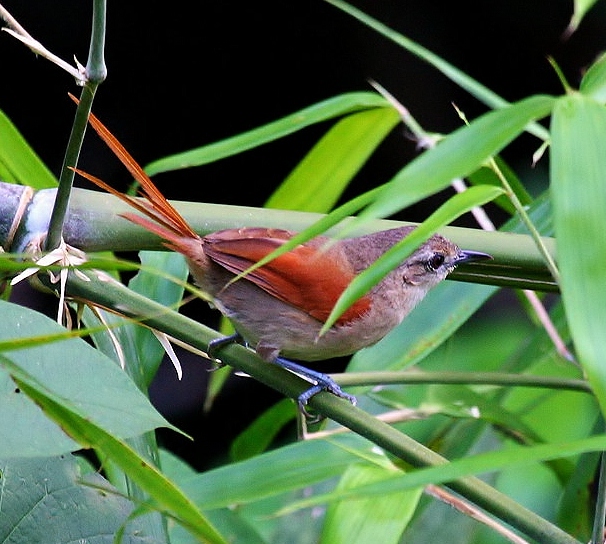 |
| Photo by Maxime Dechelle (Oiseaux) |
Common name:
plain-crowned spinetail (en); joão-teneném-becuá (pt); synallaxe de Cayenne (fr); pijuí coronipardo (es); braunkappen-dickichtschlüpfer (de)
Taxonomy:
Order Passeriformes
Family Furnariidae
Range:
This South American species is found from Colombia, Venezuela and the Guynas south to central Brazil, Peru and northern Bolivia.
Size:
These birds are 15-17 cm long and weigh 20-30 g.
Habitat:
The plain-crowned spinetail is mostly found in rainforests, gallery forests and swamp forests, especially along rivers and streams. They are also found in moist scrublands, second growths and plantations. They occur from sea level up to an altitude of 1.200 m.
Diet:
They glean various arthropods from foliage in the forests understorey, sometimes also hunting on the ground.
Breeding:
Plain-crowned spinetails are presumed to be monogamous. The nest is built by both sexes, consisting a globe-shaped mass of sticks with a sideways entrance, placed 1-2 m above ground in low dense vegetation. The female lays 2-3 eggs, which are incubated by both sexes for 17-19 days. The chicks are fed by both parents.
Conservation:
IUCN status – LC (Least Concern)
This species has a very large breeding range and is described as common. The population is suspected to suffer a moderate decline in the near-future based on current estimates of habitat loss due to Amazonian deforestation, but it is not considered threatened at present.







